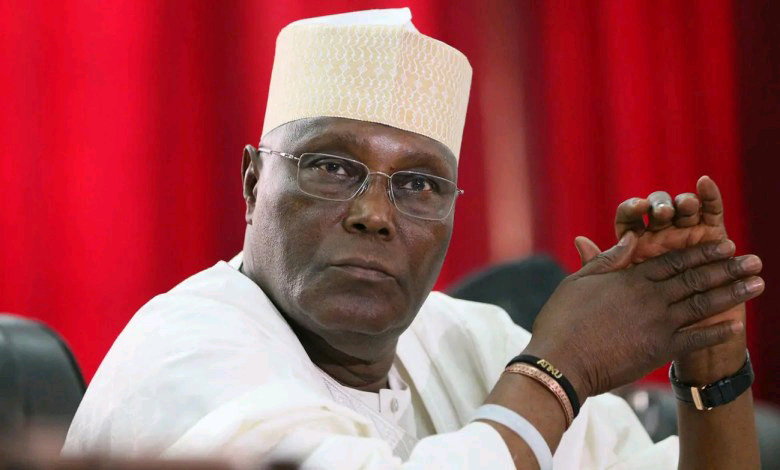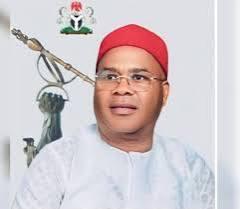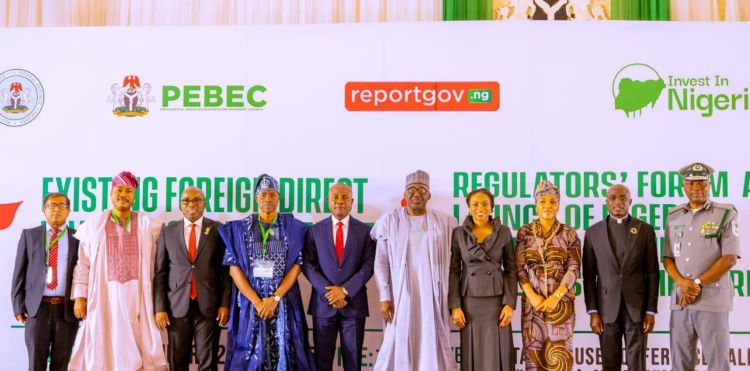By Chetam Nwobodo
It is now all clear that the Economic and Financial Crimes Commission (EFCC) is standing both legalism and logic on the head in the case of former Kogi governor, Alhaji Yahaya Bello. With the frenzy and desperation it exhibited these past days, the EFCC is justifying the pervasive notion that it’s being used as an instrument of political vendetta rather than as an anti-graft institution set up by law and obligated to be law-abiding in the discharge of its duties.
Statutorily, EFCC has the right and privilege to investigate, arrest and prosecute persons allegedly involved in financial crimes. But the law does not permit EFCC to disavow any order and judgment of a court as the case may be in the discharge of its lawful duties. Otherwise the commission ceases to serve justice but prejudice.
In the case of Bello compared to several other cases, past and present, EFCC is fulfilling the 1963 epic declaration of US Black rights activist, Dr. Martin Luther King who said that “injustice anywhere is a threat to justice everywhere.” Prima facie, EFCC has shown elements of bias, injustice and unfair treatment towards Bello in the manner the commission has harassed and publicly persecuted andtraumatized the former Kogi governor. Many now wonder, is Bello’s case beyond justice. Is it criminal prosecution or judicial persecution?
Let it be known that nobody is stopping the EFCC from performing its duties. But let it also be made clear that EFCC should never be seen to be lawless in the course of discharging its mandate. If EFCC wants to be regarded as a law-abiding agency, it must show consistency in that regard. Picking and choosing which law or court order to obey at the whim of whoever issues a command to the commission is not grand, neither self-respecting.

Yahaya Bello’s media and legal teams have never shied away from the law. They insist their principal’s case should be treated within the limits of the rule of law. Even more obvious is the fact that Bello himself has demonstrated superior allegiance to the rule of law than the EFCC itself. He has step by step turned to the court of law for redress.
A High Court in Lokoja has issued an order restraining the EFCC from arresting, harassing, detaining and prosecuting Bello. The EFCC has appealed this judgment. Why then should the same EFCC go ahead to declare Bello wanted or even expect him to appear in court without the appellate court vacating the order of the Kogi High Court on a case bordering on the fundamental rights of Bello, a constitutional right for that matter.
As it stands now, neither EFCC nor Bello should take further action on the matter until the Appeal Court determines the case. To do so is tantamount to contempt of court. The Appeal Court has fixed Monday, April 22, for the hearing of the case. All parties should wait for the appellate court either to vacate or uphold the order.
In the case of Military Governor of Lagos vs Ojukwu, the Supreme Court eloquently set the legal order when it ruled that once a matter is in court, all parties should respect the court proceedings. Nigerian jurisprudence mirrors the classic Roman legal system of the Doctrine of innocence (Ei incumbit, probatio qui dicit, non qui negat, in Latin) which places the burden of proof on he who declares, not on he who denies.
Every move made by EFCC suggests that the commission has already found Bello guilty of the crime before trial. Or how do we justify the lack of restraint and discipline by EFCC not to wait for the adjudication on a case it appealed? Why the hurry to nail Bello before even hearing his own side of the story. And what is so special about the Bello case that the EFCC is excitedly willing to spurn a court order restraining it from arresting Bello when the same EFCC has over time respected court orders, some curious and spurious, obtained by other politically exposed persons.
A few cases will suffice. For over 16 years, Dr. Peter Odili, a former governor of Rivers State procured a court order restraining the EFCC from arresting and prosecuting him. EFCC has obeyed that order ever since. The operatives did not invade Odili’s home, neither have they subjected him to media trial.
Bello Matawalle, a former governor of Zamfara still enjoys his court order handed to him in June 2023 by the Federal High Court sitting in Gusau, Zamfara State, which restrained the EFCC from further inviting, arresting or detaining present or past officials of the State government including Matawalle with respect to how funds meant for security votes, estacodes, traveling allowances or any similar facts were expended by his administration. Case closed. Today, he’s the Minister of Defence. He does not enjoy immunity even as minister, yet EFCC did not harass him and will not.
Abdullahi Ganduje has been accused of corruption in his Kano state, a crime he allegedly committed while serving as governor. He is currently the chairman of the ruling All Progressives Congress (APC). He enjoys a restraining court order and despite the weighty allegations against him by Kano state government, Ganduje continues to superintend over his party, a free man. Abdullaziz Yari, another former governor of Zamfara still enjoys his court order which restrained EFCC, ICPC and DSS from arresting him. He is a serving Senator and EFCC is aware of this. No harassment, arrest or arraignment over alleged corruption because of court order. Several other cases including Nyesom Wike, now a minister, using court order to stop the arrest of his former appointees including the current governor of Rivers state, Sim Fubara.
What is sauce for the goose should be sauce for the gander. If EFCC has obeyed court orders in the afore-listed cases and others, it should do same in the case of Yahaya Bello. He is not an alien, but a Nigerian fully entitled to his fundamental human rights. The actions of EFCC so far in the case of Bello are premeditated and prejudicial. How do you explain the misnomer that one of EFCC’s counsels is also a lawyer to a political party that Bello and his APC defeated in Kogi? This is an aberrant legal representation that mocks decency and promotes prejudice.
EFCC is casting doubts in the minds of Nigerians and by extension, in the minds of the courts of law about its ability to uphold justice and fairness in the trending case with the ex-Kogi governor. In criminal law, if there is any doubt created in the mind of the law, the judge or the court, the case is usually resolved in favour of the accused.
EFCC has so far exhibited prosecutorial rascality.
ch bile and bias against Bello by EFCC and this could count against the commission in the court of law. The world is watching the EFCC as it continues to strangle the judicial process.
- Nwobodo, a business ethics and corporate advisor, writes from Lagos.





